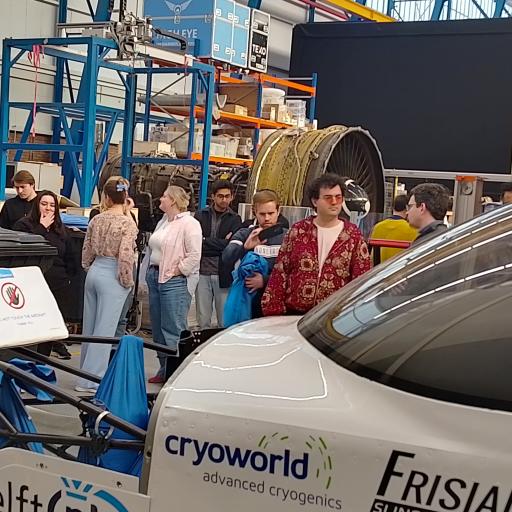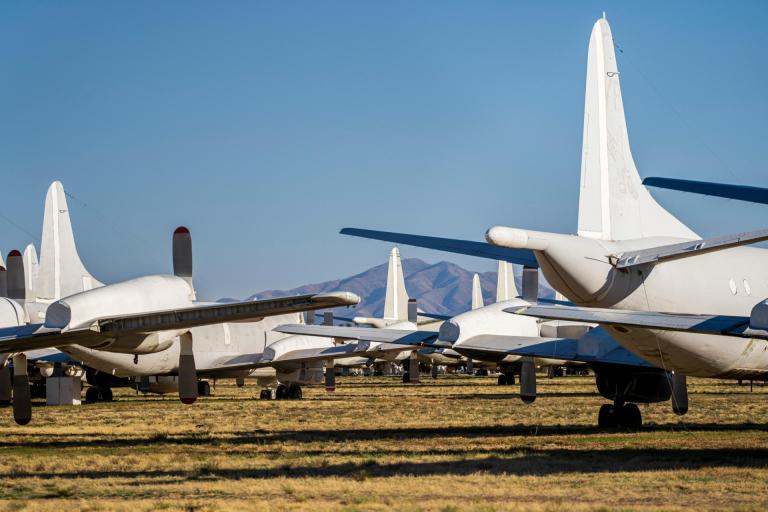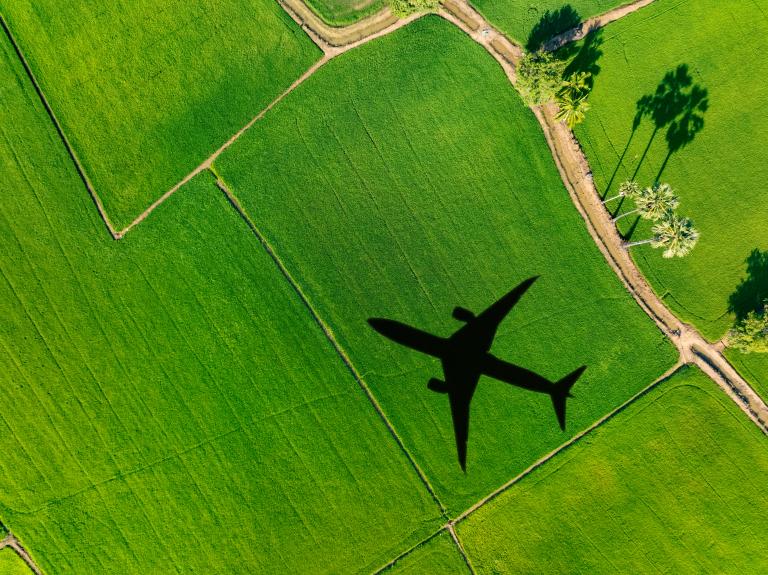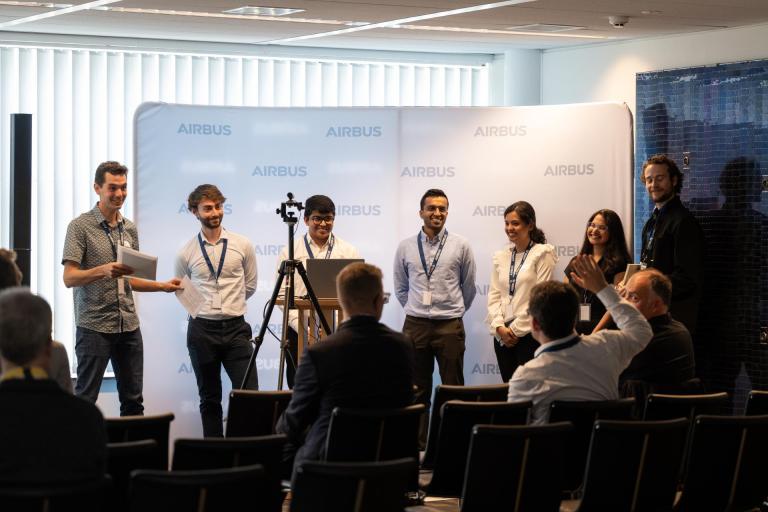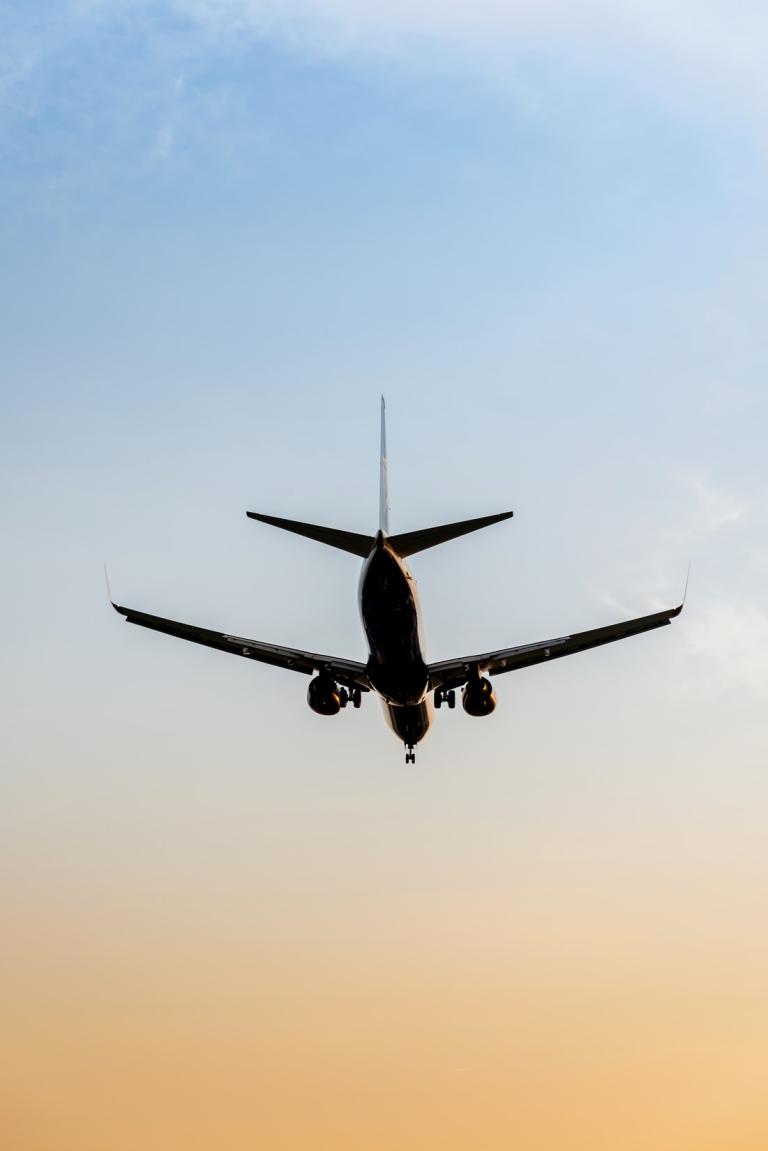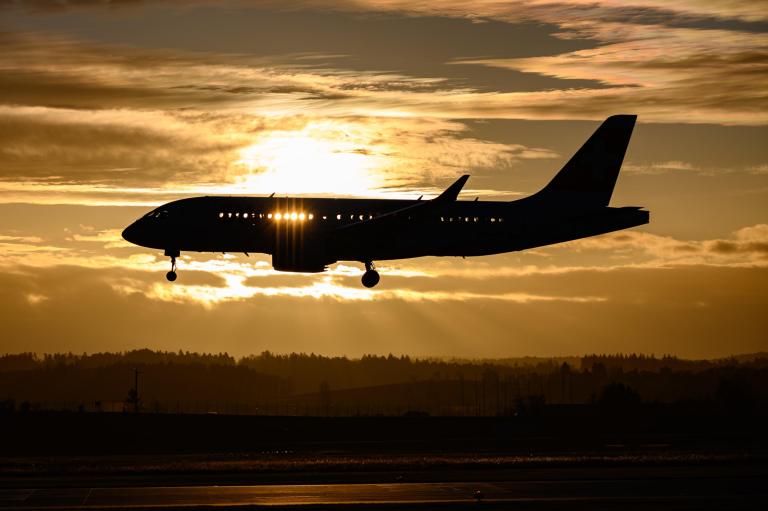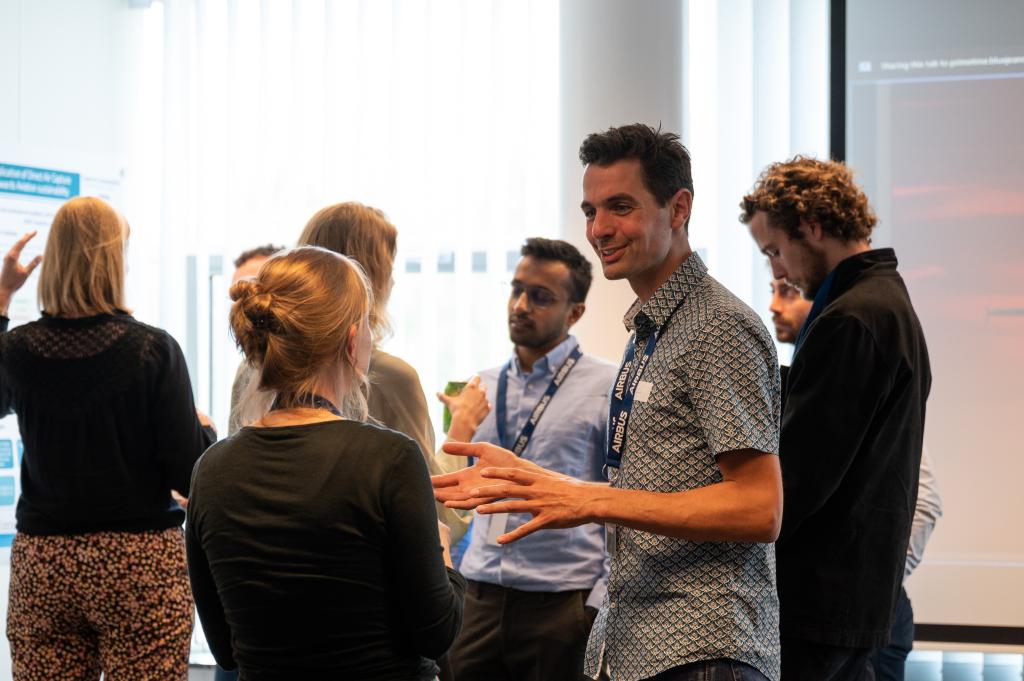
The aviation sector has made important contributions to society and the global economy over the past century. However, as air traffic has grown, so has its environmental impact. CO₂ emissions from aviation have more than doubled since the mid-1990s. The sector is now one of the fastest-growing sources of greenhouse gas emissions contributing to global climate change.
Aviation currently accounts for about two till three percent of global CO₂ emissions. Its share is expected to increase significantly, due to the rapid growth in air traffic, projected to double over the next 20 years — and the slow pace of decarbonization in the sector. In addition to CO₂, aviation also produces non-CO₂ effects, such as contrails and NOx emissions, potentially doubling the sector’s total climate impact.
Since 2022, we have been working with the aviation industry to help shape a greener future for the sector. We have organized four Thesis Labs in collaboration with organizations. In those Labs students from the Leiden-Delft-Erasmus universities and universities of applied sciences in South Holland brought diverse perspectives to tackle the main challenges in the sector’s transition to sustainability. With topics such as: the need for better end-of-life solutions, the potential of sustainable alternative fuels, new (eco)designs and improved legislation. During Meet-Ups, we brought together experts from various branches of the sector. And with our Talks, we presented the latest innovations in the field.

